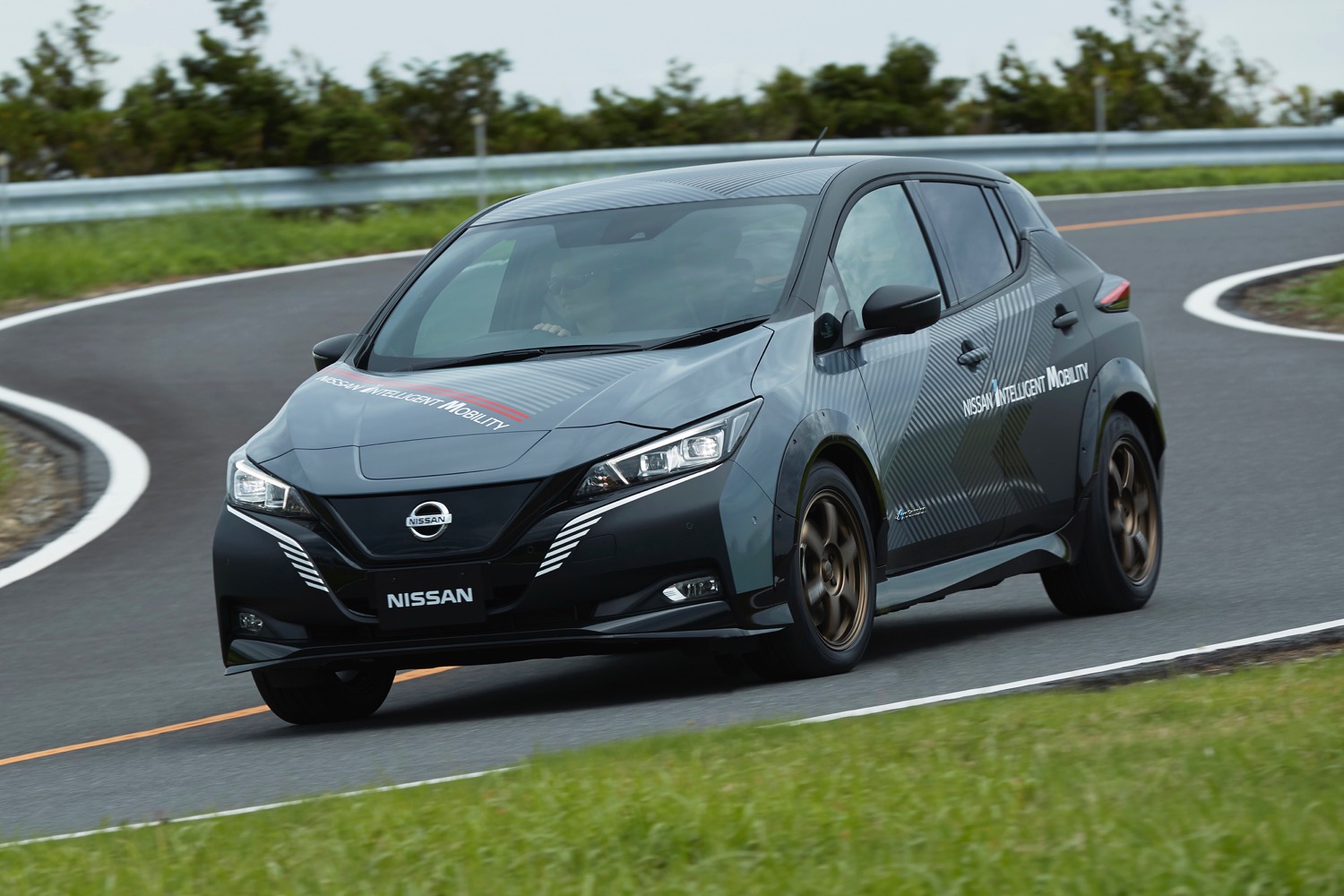
Nissan used the 2019 Tokyo Motor Show to unveil a smorgasbord of next-generation technology, with some items closer to production than others. The Japanese automaker revealed an electric all-wheel drive system, and is continuing work on tech that will allow drivers to chat with in-car virtual avatars.
The all-wheel drive system uses one electric motor to power each axle, similar to the setup used by Tesla and other automakers. Demonstrated in a modified Nissan Leaf Plus, the two electric motors produce a combined 304 horsepower and 501 pound-feet of torque, compared to 214 hp and 250 lb-ft for the stock, front-wheel drive Leaf Plus. That extra power can also be precisely controlled, according to Nissan. The all-wheel drive system can change the split of power front to rear, and even side to side. It can also work with the car’s brakes to smooth out deceleration, avoiding strain on occupants’ necks, according to Nissan.
The prototype used the same 62-kilowatt-hour battery pack as the Leaf Plus, but a larger battery pack could allow more power, Toshiyuki Nakajima, the all-wheel drive system’s chief engineer, said in an interview with Automotive News.
Nissan does plan to put the all-wheel drive system into production, but it will have different specifications than the prototype, Nakajima said. Automotive News reports that electric all-wheel drive will debut on a production Nissan crossover in 2020, and will reach the United States by 2021.
Further out, Nissan may also use solid-state batteries in its electric cars. These batteries are quickly becoming the holy grail for automakers. Proponents claim solid-state batteries can hold a greater amount of energy for a given volume than today’s lithium-ion batteries. Their solid electrolyte (hence the name “solid-state”) is also made from a nonflammable material, unlike lithium-ion batteries. Toyota has expressed interest in solid-state batteries, and Fisker expects this battery tech to give electric cars 500-mile ranges.
Nissan is also continuing work on what it calls “invisible-to-visible (I2V)” tech. First revealed at CES 2019, it uses 5G connectivity to overlay information onto a car’s windshield, or allow drivers to summon virtual avatars. It could be used for everything from helping find a parking space to track day coaching, Nissan has told Digital Trends. But it’s unclear whether this tech will be commercially viable. Real-world tests began in Japan earlier this year, and Nissan doesn’t expect commercialization until 2025 at the earliest, according to Automotive News.
Editors' Recommendations
- If you want to drive this electric Jaguar, you’ll have to play Gran Turismo
- Toyota has a new electric car for you — and it’s about the size of a golf cart
- Nissan IMk concept can park itself, communicate using holograms
- The first fully electric Lexus production car may not go after Tesla


